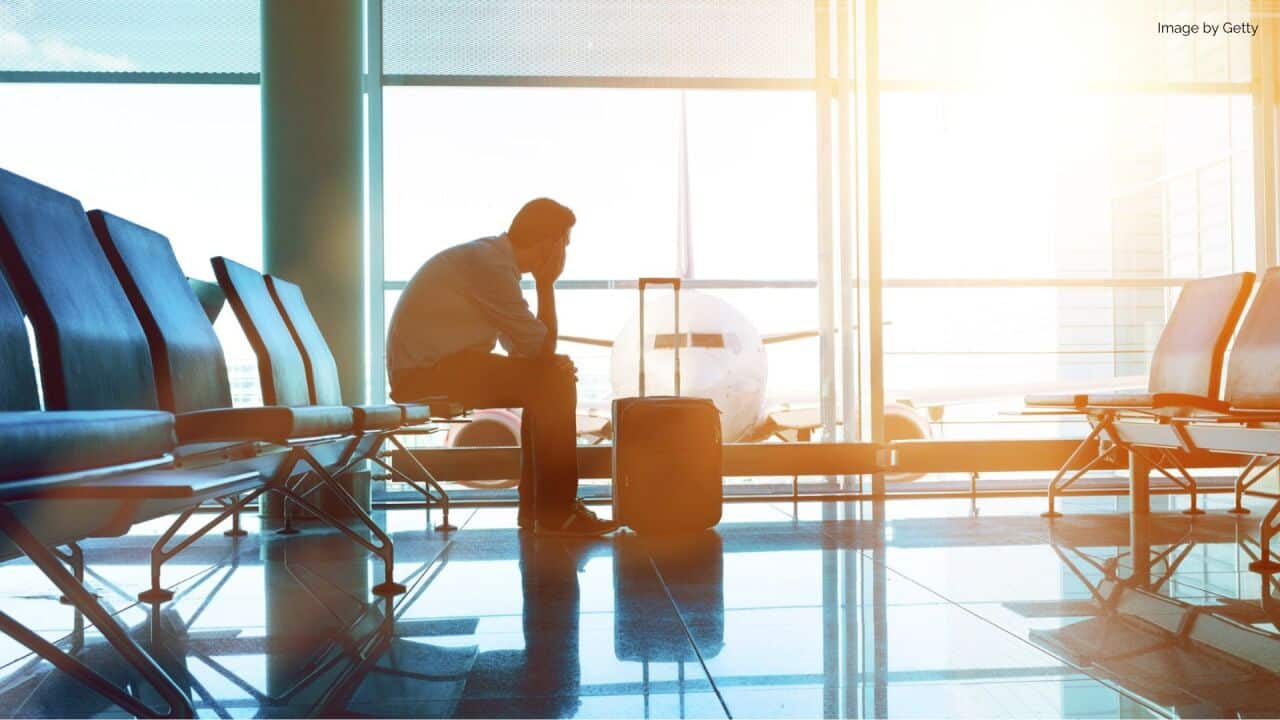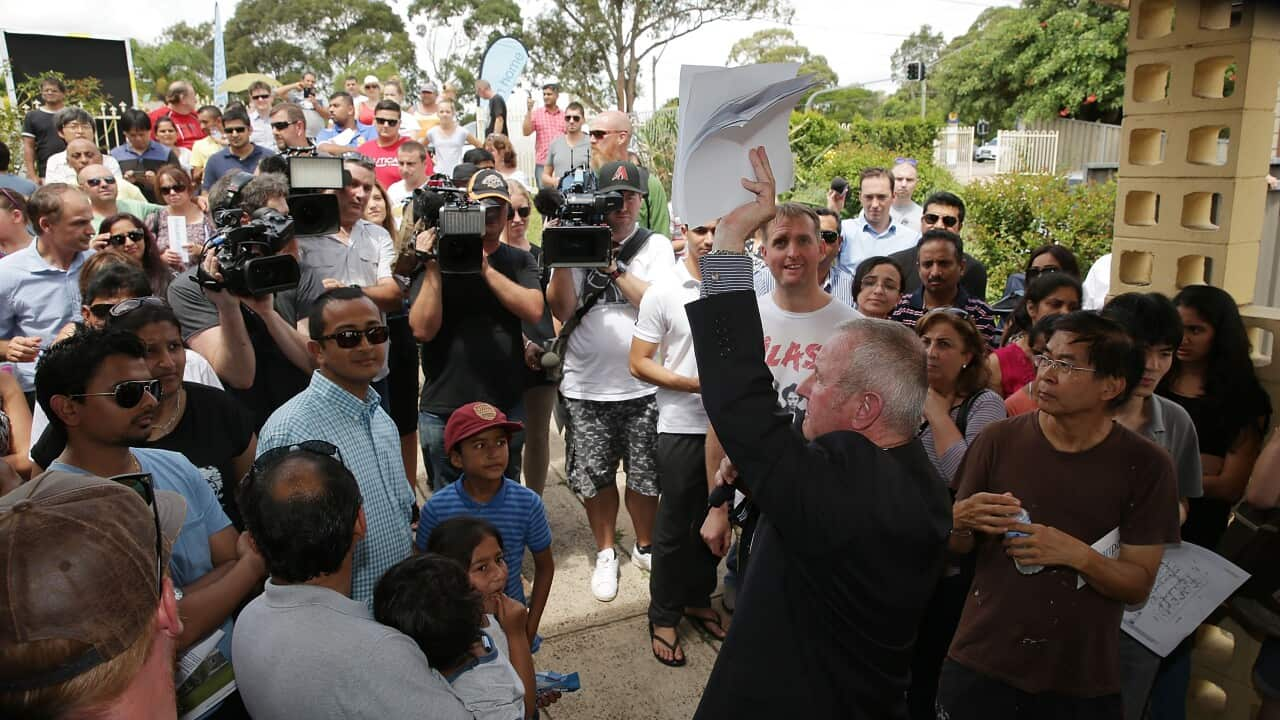Key Points
- International education was worth $36.4 billion to the Australian economy in 2022-23, as per government data.
- Increasing the non-refundable visa fee assumes that 'quality students means rich candidates': Group of Eight universities chief executive.
Australia recently implemented an increase in international student application fees from $710 to $1,600, along with changes to English language and minimum fund requirements.
Now the federal government plans to place places at educational institutions in Australia.
Some experts say that these systemic changes could make Australia an "unwelcoming" destination for students and cost higher education institutes millions of dollars.
‘Students being treated as criminals’
Nishidhar Reddy Borra, President of the Association of Australian Education Representatives in India, said international students in Australia were being treated as “criminals”.
“At this moment, there is a terrific slowdown of visa processes. There have been extreme delays (in granting visas). There have been delays in universities granting confirmation of admission for students.
"In India, students are confused. Any student who applies at an Australian university is not treated as a customer but instead as a criminal,” he told SBS Punjabi.
Borra said many international students were now looking at other countries whose processes are “simpler and have more clarity”.

Vicki Thomson, chief executive of Group of Eight universities. Credit: Supplied
"With the cost of living crisis, having the highest visa fee in world, the waiting time (of getting a visa), and then you hear that we have in our Federal Parliament a legislation to implement caps (on international students), you start to think if I will be welcomed in Australia and that is a sad state of affairs," she said.
‘Cap on international students could deter the economy, impact research’
She said fewer international students could mean the loss of revenue and research opportunities for Australian colleges, and economic losses for the nation.
"For many years, Australia has had a distorted funded model where our research efforts are largely funded by our international students’ revenue. That is particularly the case with the Group of Eight, which conducts 70 per cent of all university-based research in Australia," Thomson said.
If (the government) starts playing with the international fee revenue, you have a challenge around how you can fund your research efforts.Vicki Thomson, chief executive of the Group of Eight universities
"We (Go8) invest about annually. We receive $2.8 billion from the federal government, the large majority from international fee revenue."
She added that international education generated 69 per cent of the international tourism spend in Australia, which could also be affected by the caps.

Apart from tuition fee, international students also contributed $21.8 billion in goods and services to the Australian economy: government data. Credit: Pexels
The report also said international students not only contributed to the economy by paying fees, but by participating in the workforce and as consumers.
Government data revealed that in 2022-2023, international education was worth $36.4 billion to the Australian economy, comprising $21.8 billion as goods and services and $14.6 billion in tuition fees.
‘Quality does not always mean rich’
Thomson said the decision to increase the non-refundable visa fee could block some students from accessing Australia's world-class education.
"We want quality students to come to our universities with the intent of studying and not using Australia as a migration pathway," she said.
We support the intent of what the policy is but what this assumes by hiking up fees is that all quality students are rich. And we know that’s not the case.Vicki Thomson, chief executive of Group of Eight universities
"We know that there are good quality students where this would be a barrier to entry. I am thinking here of students from underdeveloped countries from the ASEAN region.
"By putting up the hike in fee in this way, there is an assumption that everyone can afford to pay that."
Borra expressed a similar view: "The worst part of the constantly changing visa policies from Australia's end is the increase in (the) student visa fee without time (to brace for the change). This is totally unfair and unjustified. There is a need for government to look at the things from a broader perspective."
Phil Honeywood, the CEO of the International Education Association of Australia (IEAA), took to X (formerly Twitter) to claim that the decision is "exploiting young people".
Regional, private colleges facing bleak future
There are fears that the international student caps will be another blow for regional and private Australian colleges and universities which are yet to recover from the economic losses caused by the pandemic.
In June, Federation University in Victoria made 163 positions redundant to "put the University on a sustainable financial footing".
These moves, the university said in an official statement, were "the after-effects of COVID-19 disruption and changes to student visa arrangements that resulted in a 49 per cent decrease in international student numbers between 2019 and 2023".
Alec Webb, the CEO of the Regional Universities Network (RUN), said regional universities had seen a 50 per cent fall in student enrolment and a 61 per cent drop in international student revenue since 2019.
"The devil is really going to be in the detail regarding how the caps will be set and how they will work at the individual institutional level," Webb said.
"At the moment it's not a level playing field. Whenever we think how caps will work, we need to understand universities are good faith actors in the international higher education ecosystem. The goalposts are constantly being moved by (the Department of) Home Affairs."

Regional universities have reported a 50 per cent fall in student enrolment and a 61 per cent drop in international student revenue since 2019. (Image by Pexels)
Sukhwinder Singh, formerly a private college owner, recently shut down his institution in Sydney calling it a "bad business".
"Private colleges which have invested a lot of money in the Australian economy, who are also employing a lot of people, are not considered while making policies. With the current attitude of the government, these private colleges are in a state of uncertainty," Singh said.
"They do not even know if they (will) be surviving anymore in a year or two."
What does the government say?
In response to a written query from SBS Punjabi, a Department of Education spokesperson said all stakeholders would be consulted before the new system was brought into place.
"These measures and the final International Education and Skills Strategic Framework will be informed by consultations with the sector, including students, student associations and higher education providers, prior to being finalised and implemented from next year," a department spokesperson said.
The spokesperson said the department intended to "manage the international education system for sustainable growth over time. This will help support a positive student experience for all students studying with Australian providers".
"There is broader work underway to consider limits across the sector, particularly in Vocational Education and Training (VET).
Through this work, we want to deliver greater certainty for universities and long-term sustainable growth for the broader sector.Department of Education
"For universities, the approach to a managed system will be negotiated through unique international student profiles, which will establish limits on enrolments for each university," the spokesperson added.
Click on the audio icon to listen to the full report and interview in Punjabi.














